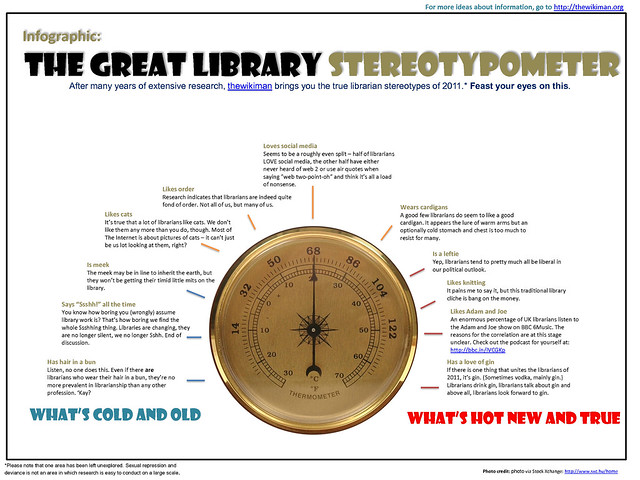... but which so few do!
- Market the service, not the content. Telling people about content puts the onus on them think about how they can integrate that content into their lives; many people simply don't have time to analyse what we're offering in that way. We should be making it explicit how we can help them so they need no imagination to understand it - and that comes from marketing services. To paraphrase the awesome Sara Batts, Content is, Services do. Doing is more useful to people than being, so when you have a very limited time in which to appeal to people with limited attention span, market to them what you can do.
- No one cares about the how! Can't stress this enough: libraries are seemingly process focused, but the the rest of the world is focused on results. When marketing a service we should concentrate on what people aspire to, not the tools which will get them there. A classic example is databases: we say things like "we subscribe to X databases which you can access via the library catalogue" or, even worse, we name them individually. We market the features; what people want to know about is the benefits. Like Mary Ellen Bates says, the way to market databases is to say 'we provide you with information Google cannot find'.
- Market what THEY value, but continue to do what WE value. The SLA's Alignment Project unearthed some fascinating truths about what we as libraries and librarians think are important, and what our patrons and potential patrons think are important. There are marked differences, I'd urge you to read about it for yourselves. (To sum up, users put the emphasis on value-driven attributes, we put it on functional attributes. This is, essentially, points 1 and 2 above, mixed together.) But the key thing is this - it doesn't mean the stuff we value isn't important, it just means that it isn't as valued AS highly by other people. So we continue to DO all the important stuff we value, we just concentrate the marketing on promoting the stuff THEY value. .
You don't need to be a genius to do this stuff, or to have huge marketing budgets, or even loads of time. It's just a case of reconfiguring our existing efforts to acknowledge some simple rules.
Any that you'd add?
- thewikiman
p.s There is a part two of sorts, for this post, here.




